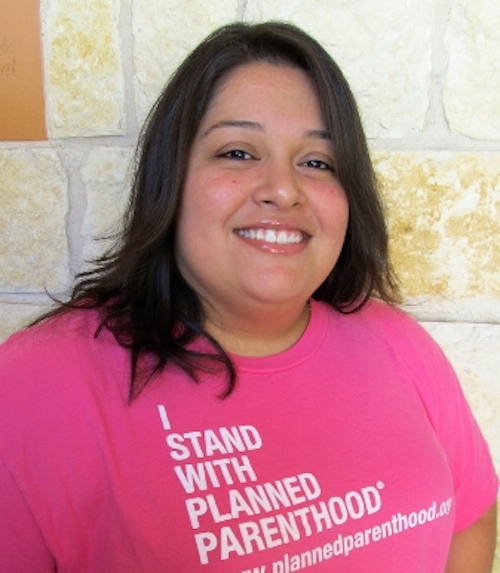Carmen Alvarez had grown used to, if not comfortable with, coworkers whispering behind her back that she was hell-bound because she’s a lesbian. So when she started working as a medical assistant at one of Planned Parenthood of Greater Texas’ Austin clinics two years ago, it was a relief to learn that the organization wouldn’t have the same workplace tension and judgment.
“They don’t put a label on anybody,” Alvarez said of Planned Parenthood. “It’s more like you’re someone who’s working here, and we’re all here for the cause. I’ve worked for some places where I’d get vibes that they’re not comfortable with me. But when I first started here, there was a variety of people working here—some lesbian, some gay, some transgender. When they told me that (CEO Ken Lambrecht) was gay, I was like ‘wow’.”
It may not come as a surprise that Planned Parenthood, which has come under fire from Texas’ conservative leadership, espouses workplace diversity and respect. Nonetheless, coming to work every day in a place where she can be herself is not something Alvarez will ever take for granted.
Alvarez clearly has a sweet nature and when she talks about working for Planned Parenthood, she becomes almost chipper. She took a gamble taking the job there, uncertain what the environment would be like. It didn’t take long for her to love the job, though, not just because of the accepting environment but because she likes helping her patients.
“We’re medical assistants/friends/counselors,” she said of her job. Many patients come to Planned Parenthood from other doctor’s offices where they’ve received a positive test with no follow up information, and are often panicked. Many don’t understand that something like HPV is not a guarantee they’ll contract cervical cancer, or that a positive STD test is not a death sentence. Medical assistants like Alvarez give patients information, and act as a kind ear to listen to their medical concerns and questions.
All of Planned Parenthood’s services, from routine pap smears to STD testing, are open to all clients regardless of sexual orientation. Some Planned Parenthood clinics offer specific services for transgender clients, something the Austin medical staff is examining as a possibility for its clinics in 2013, said Sarah Wheat, the vice president for community affairs for Planned Parenthood of Greater Texas.
But whether or not Planned Parenthood will be able to continue its services to the tens of thousands of patients who come to its clinics—33,000 patients come through its Austin clinics annually—remains to be seen.
In its last legislative session, the Texas Legislature cut funding to women’s health services, and cut Planned Parenthood out of the Women’s Health Program. That prompted Federal officials to first threaten and then follow through with cuts to federal funding that largely paid for the entire Women’s Health Program.
“To date, 60 clinics have closed around the state, 12 of them Planned Parenthood clinics. We’re seeing more women driving in from Hays County or Manor. If you’re uninsured and looking for birth control or need an HIV test, your options have been cut enormously,” Wheat said.
All that flies in the face of public health studies and research that have documented the cost savings that accessible family planning and screening brings to a community, making these cuts doubly frustrating, Wheat said.
The 2013 legislative session will undoubtedly bring more battles over the future of the Women’s Health Program, and Planned Parenthood has been fighting the state’s decision in court. Wheat said one bright spot has been the community.
“The Austin community has been here for us,” she said. “We’re grateful we’ve had that level of support.”




































